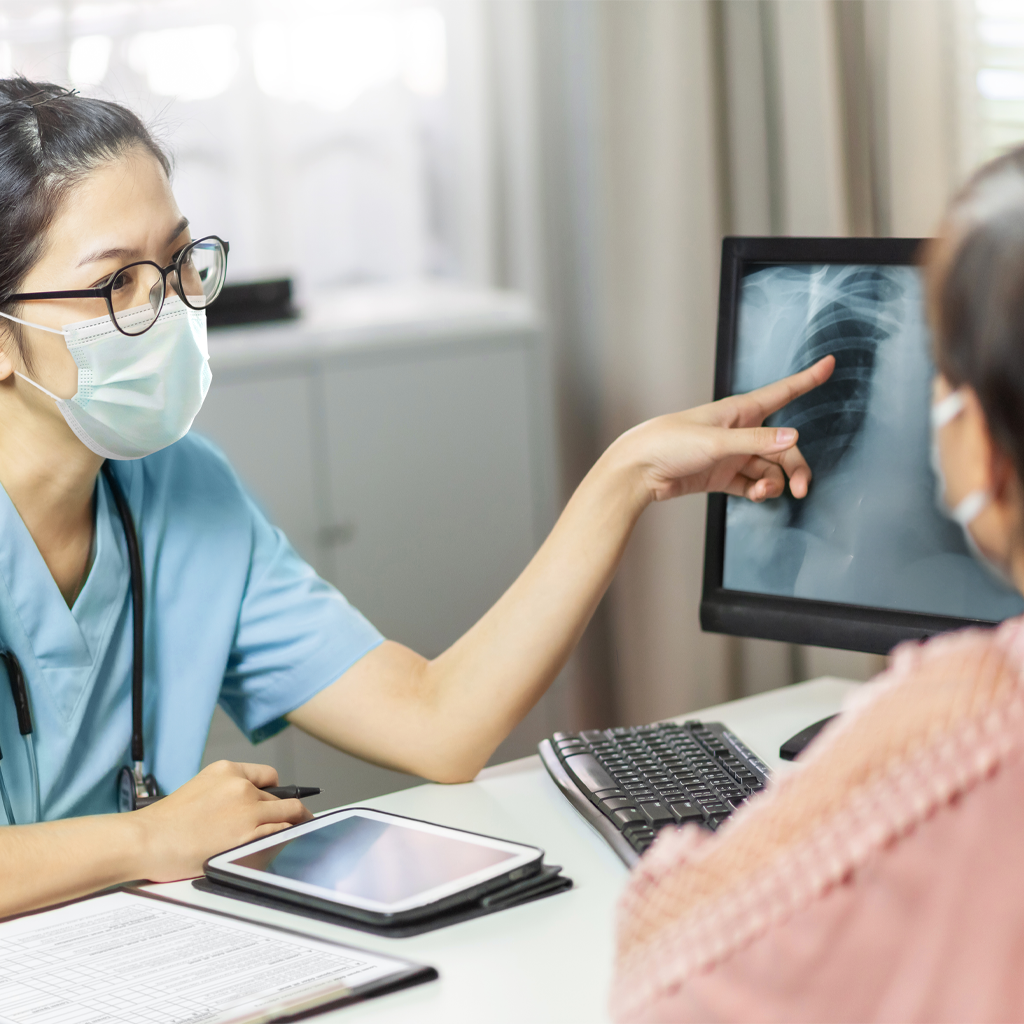X-Ray/Fluoroscopy
Radiology Associates of Ridgewood NJ, P.A. offers a complete range of diagnostic digital radiography and fluoroscopy using state-of-the-art equipment. Our radiology technologists are certified both nationally and by the state of New Jersey, experienced, and treat our patients professionally and courteously.
Digital Radiography (X-ray)
Digital radiography exams may be ordered by your physician to diagnose conditions in the chest, bone, sinuses, skull or spine. It is the oldest and most frequently used form of radiological imaging. X-ray is the fastest and easiest way for a physician to evaluate broken bones. It can also be used to diagnose and monitor the progression of degenerative disease and is often obtained along with CT and MRI studies.
There is no special preparation required for most X-rays. Once you arrive, you may be asked by the technologist to change into a gown before your exam. You will also be asked to remove jewelry, eyeglasses and any metal objects that may obscure the images. During the procedure, you may be standing up or lying down on an examination table.
There is little reason to worry about the small amount of radiation you will be exposed to when you receive an x-ray. However, if you are pregnant or suspect that you may be, you should tell your physician or our technologist before the test is performed as special precautions may have to be taken.
Fluoroscopy
Fluoroscopy is a form of diagnostic radiology that enables the radiologist, with the aid of a contrast agent, to visualize real-time, moving images within an organ, a joint or other region of the body. The contrast agent may be introduced into the body through injection, swallowing or enema.
Fluoroscopy tests consist of a series of images taken by the radiologist and technologist. There may be special preparation required for a fluoroscopy procedure, which will be discussed with you when the exam is scheduled.
GI Series: The upper gastrointestinal (GI) series uses x-rays to diagnose problems in the esophagus, stomach, and duodenum (first part of the small intestine). It may also be used to examine the small intestine. The upper GI series can show a blockage, abnormal growth, ulcer, or a problem with the way an organ is working. Similar procedures performed include: GI with air contrast series, GI/small bowel with air contrast Series, GI/small bowel series, and esophagram.

